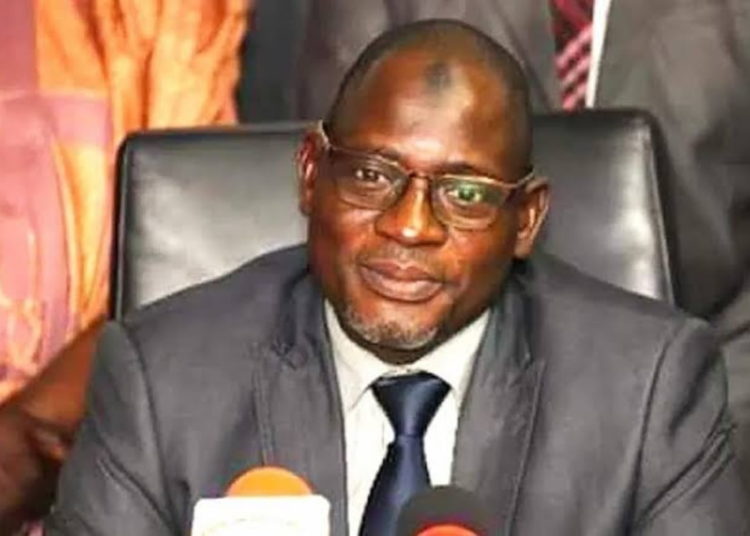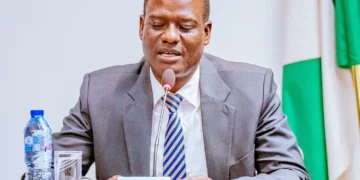The Federal Inland Revenue Service (FIRS) has set new record for revenue generating agencies of government with a record revenue generation of N10.1 trillion in the year-end 2022. That was the highest revenue from a government owned enterprise in history.
FIRS chairman Muhammad Nami made the disclosure yesterday in an exclusive interview with few journalists in his Abuja office.
For him, the record N10.1 trillion was as a result of several innovations and measures taken to drive revenue collection and improved compliance. Nami said his tax reform initiatives centered around administrative and operational restructuring; making the service customer-focused; creating a data-centric institution; and automation of administrative and operational processes were responsible for the improved revenue collection.
The service had also automated most of the administrative and operational processes. A major leap was the full deployment of the TaxPro Max for end-to-end administration of taxes in June 2021. The module for the automated TCC went live on 1st January 2023 while taxpayers had already downloaded over 1,000 TCCs this year without having to visit FIRS office.
However, the target for the year was N10.4 trillion. That was a little below the revenue target for the agency by the federal government.
Mr Nami said over N1.4 trillion was lost federal government’s tax waivers for some agencies in the year under review.
Nami said the revenue agency would have surpassed the 2022 target if the waivers were collected and added into the federation account.
A breakdown of the figure showed that in the year 2022 collected a total of N10.1 trillion in both oil (N4.09 trillion) and non-oil (N5.96 trillion) revenues as against a target of N10.44 trillion.
Company income tax contributed N2.83 trillion to the total revenue, while Value Added Tax (VAT) amounted to N2.51 trillion, with electronic money transfer levy standing at N125.67 billion and; earmarked taxes: N353.69 billion.
Non-oil taxes contributed 59 per cent of the total collection in the year, while oil tax collection stood at 41 per cent of total collection.
In a performance update report that was released by the tax agency yesterday, FIRS said the total revenue includes the sum of N146.27 billion which is the total value of certificates issued by the service to private investors and NNPC for road infrastructure under the road infrastructure development refurbishment investment tax credit scheme created by Executive Order No. 007 of 2019.
Nami said the service had also operationalised its data mining and analysis system thereby allowing for data-backed taxpayer profiling.
“This was possible through dogged implementation of strategic reforms over the past two years; a renewed commitment by officers of the Service, accompanied with a boosted morale; as well as the innovative deployment of technology for automation of both tax administration and operational processes,” Mr Nami stated in an interview yesterday.
The FIRS boss appealed to the federal, state and local governments to rightly apply the revenues being generate by the revenue agency to critical sectors impact on the generality of the people.
“We appeal to the three tiers of government to continue to apply the little revenues we generate judiciously to encourage taxpayers to pay more,” he stated.
Nami also called for tax harmonisation in Nigeria for more revenue generation and to curb tax invasion.
“If you operate multiple tax system, you will make it possible for taxpayers to dolge paying taxes.
“With a single tax authority, you are able to harmonise operations, tax issues and make it easy for tax payers to pay taxes,” he stated.
Speaking on the outlook for 2023, Mr Nami stated that the service would build on the current reforms, achieve full automation and continue to establish a resilient Service that would continue to provide sustainable tax revenue to fund the government.
“We intend to maintain, and even improve on the momentum in 2023,” he stated.
“We have peaked, but this is not certainly our peak. In fact, my hope is that this would be the least sum the Service would ever collect going forward.
“Our goal is to identify more areas where we can improve on in the delivery and efficiency of our collection; and plug loopholes, while deploying innovative reforms in data and artificial intelligence.
“Ultimately, we believe that the FIRS can shoulder the responsibility of providing revenue needed for the governments across the Federation to cater for the needs of the Nigerian people through taxes.
“This is feasible once we get the much-desired support from the three tiers and arms of government, as well as all stakeholders,” he stated.





